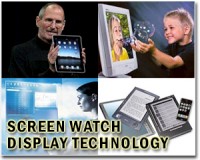 |
Barcelona, Spain (AFP) Feb 17, 2011 Nokia's decision to join forces with Microsoft marks a major shift in the global smartphone war but the big question is whether the Finnish company opted for the right partner. Nokia's switch to Microsoft's Windows Phone operating system was the first significant break in the industry since the Google-backed Android smartphone operating system emerged last year to rival Apple's iPhone. Smartphones are rapidly evolving into the devices linking us to the world, for business and pleasure, and so the move by the world's top mobile phone maker has stoked debate over how this massive market will play out. At the Mobile World Congress, smartphones with street cred from the likes of Samsung, HTC and LG pose an ever stiffer challenger for a Nokia unable to mount a quick and credible riposte armed only with its Symbian operating system. Industry players and analysts agree that Nokia, seeking to escape what new head Stephen Elop called the burning flames of competition, had little choice but to jump. "I understood why he did it and I guess if I had been in his place I probably would have made a similar call," said Paul Otellini, head of the computer chip giant Intel. But did Nokia just leap to another burning platform? Industry tracking firm comScore said Monday that Microsoft's share of the trend-setting US smartphone market fell 1.5 percentage points to 8.4 percent in the final quarter last year despite it releasing its latest Windows Phone 7. Telecoms analyst Magnus Rehle of Greenwich Consulting was sceptical Windows Phone 7 would win over customers. "Microsoft has tried seven times now and so far they have not been able to convince end users ... and also the developers, which is a key to success because if they don't have enough content, they will not succeed in winning new users either." Nokia's Elop said here that by passing up Google for Microsoft "we create an environment where now Windows Phone is a challenger. We have created ... a three horse race" in the smartphone operating system marketplace. Nokia would provide the "swing factor" to encourage developers to create applications for Windows Phone, he said. Microsoft chief Steve Ballmer took the same line. "Nokia's involvement with Windows Phone will drive volume, innovation of new products and will accelerate adoption of the Windows Phone platform," he said. But with Nokia saying so far only that it hopes to bring out a Windows Phone later this year, their Symbian customer base will be sorely tempted to defect. Adopting Google's open Android system would have allowed Nokia to get new models out more quickly and finally catch the smartphone wave, Rehle said. However, an analyst at high-tech consulting firm Canalys, which predicts Android will grow at double the rate of its competitors this year, said Nokia had good reasons to plump for Windows Phone. Arriving late to the Android party, Nokia would have been at an immediate disadvantage to other handset makers and it would have had trouble differentiating its products from competitors in the critical US market, said Canalys' Pete Cunningham. He suspects Nokia is looking a step ahead to the next great revenue stream -- an expected boom in advertising on smartphone handsets. "I think that together Nokia and Microsoft position themselves very well for when the growth in mobile advertising comes," said Cunningham. From a technology and a product point of view, Windows Phone 7 is a credible alternative to Android and the iPhone, he said, and "where Microsoft is losing now is in the marketing battle. "They've got every opportunity" to succeed, said Cunningham. "Its now just a question of whether together they can execute." For computer security expert Eugene Kaspersky it may be too late, with Android having attracted a critical mass of innovative developers to drive all others to the sidelines. Kaspersky, who founded the leading anti-virus firm Kaspersky Lab, said there is only "one company, one operating system which follows Microsoft's strategy of the 1990s" when it encouraged developers to create the applications that ensured Windows' success in the personal computer market. "I believe that if Apple, BlackBerry, Microsoft ... don't change their strategy very soon we will soon have the same mobile operating system landscape as we have with computers," he said. Kaspersky showed a chart of how he sees the smartphone market in a couple years time -- Android holds a whopping 80 percent with Apple's iPhone and Research In Motion's BlackBerry sharing the rest with 10 percent each. There was no slice of the pie for Microsoft and Nokia.
Share This Article With Planet Earth
Related Links Space Technology News - Applications and Research
 Long lost silent movies returned to US
Long lost silent movies returned to USCulpeper, Virginia (AFP) Feb 17, 2011 In a cold underground bunker once packed with enough dollars to replenish the cash supply in the eastern United States in the event of a Soviet nuclear attack, "Gigi" lies silently near "An American in Paris". In a room next door, a young woman who gave her name as Barbara works on "Little Brother". Upstairs, one of Barbara's colleagues is trying to make sense of "The Arab". This is not ... read more |
|
| The content herein, unless otherwise known to be public domain, are Copyright 1995-2010 - SpaceDaily. AFP and UPI Wire Stories are copyright Agence France-Presse and United Press International. ESA Portal Reports are copyright European Space Agency. All NASA sourced material is public domain. Additional copyrights may apply in whole or part to other bona fide parties. Advertising does not imply endorsement,agreement or approval of any opinions, statements or information provided by SpaceDaily on any Web page published or hosted by SpaceDaily. Privacy Statement |